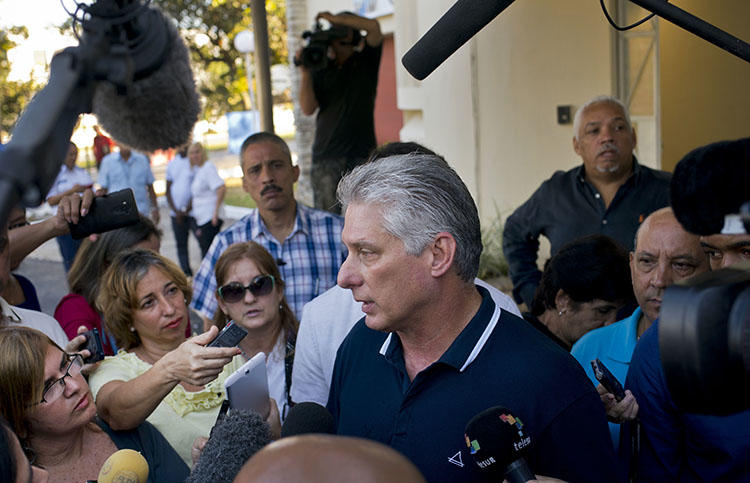Miami, February 25, 2019– Cuban authorities should immediately ensure citizens have access to news websites, the Committee to Protect Journalists said today. Several critical news sites were blocked in the country yesterday, as Cuba held a national referendum on proposed changes to its constitution, news sites reported.
Access was blocked to several sites that operate from Cuba, including 14ymedio and Tremenda Nota, as well as news sites operating abroad, including Cibercuba, Diario de Cuba and Cubanet, according to media reports. Several of the sites reported on the blocks via Twitter. Yoani Sánchez, the director of 14ymedio and a Cuban blogger, tweeted that her site had been blocked since February 23.
CPJ’s calls to ETECSA, the Cuban telecommunications regulator, at the listed phone number for its Havana headquarters went unanswered.
“If the Cuban government wants the international community to view the constitutional referendum as legitimate, blocking access to critical news sites on voting day is not the way to go,” said CPJ Central and South America Coordinator Natalie Southwick in New York. “Cubans have the right to access information from a broad range of sources.”
ETECSA often blocks independent news outlets, according to Freedom House’s latest “Freedom on the Net” report. Yesterday, ETECSA called for a yes vote on the referendum via its official Twitter account.
Cuba’s electoral commission announced today that citizens voted in favor of the changed constitution. The proposed changes introduce the notion of “private property” and make references to business, foreign investment, and the right to legal representation if detained, Reuters reported. However, the ban on private ownership of news outlets remains, thus maintaining total state control of the media.
Cuban leaders had been calling for a “yes” vote on the proposed constitution, including via Granma, the official newspaper of the Communist Party of Cuba. Meanwhile, opponents have complained that state-run media did not cover the “no” campaign and that they were forced to limit their campaign to social media, according to journalists.
Despite some improvements to internet access in recent years, Cuba remains highly disconnected and is one of the most hostile environments for the press, with the most restrictive laws on free speech and press freedom in the Americas, CPJ found in its 2017 report “Connecting Cuba.”
